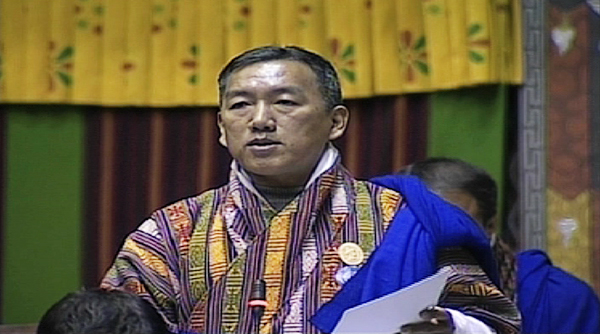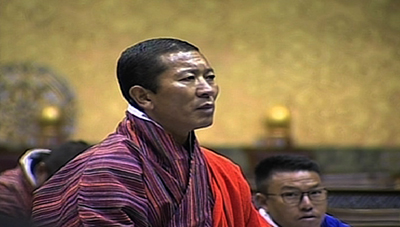 The opposition party says 12th Five-Year-Plan (FYP) is “too shallow” to achieve the government’s vision of narrowing the gap, reducing poverty and bringing down the youth unemployment rate.
The opposition party says 12th Five-Year-Plan (FYP) is “too shallow” to achieve the government’s vision of narrowing the gap, reducing poverty and bringing down the youth unemployment rate.
The Member of Parliament from Panbang Constituency under Zhemgang, Dorji Wangdi, said the 12th plan is not promising enough to narrow the rich-poor gap.
He said the plan will be reducing the poverty rate by just 0.8 per cent, adding that youth unemployment should be brought down to at least two to three per cent.
The current youth unemployment rate stands at 12.3 per cent.
The MP added the gap in Gini coefficient will be same like today even after the 12th FYP period ends.
“The gap between the rich and the poor in 2003 was 0.42 and in 2007 it was 0.35. In 2012, it was 0.36. Today it’s 0.38 in Genie Coefficient. The current government’s plan is to keep the gap as it is at 0.38. So the plan is likely to be a big failure to achieve the government’s big vision of narrowing the rich-poor gap.”
The Gini coefficient is a statistical measure of distribution developed by the Italian statistician Corrado Gini in 1912.
It is often used as a gauge of economic inequality, measuring income distribution or, less commonly, wealth distribution among a population.
MP Dorji Wangdi also suggested the government to increase the country’s economic growth rate beyond the projected rate of five to six per cent, presented by the Finance Minister in the house today.
 To this, Prime Minister Dr Lotay Tshering, clarified that, “If we have to increase GDP growth rate by 7 to 8 per cent in five years, there could be negative implications. We cannot bring about sustainable development and fulfil the vision of GNH. People will become rich but there won’t be happiness.”
To this, Prime Minister Dr Lotay Tshering, clarified that, “If we have to increase GDP growth rate by 7 to 8 per cent in five years, there could be negative implications. We cannot bring about sustainable development and fulfil the vision of GNH. People will become rich but there won’t be happiness.”





